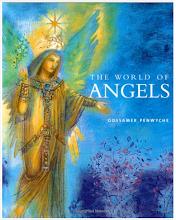Tuesday, September 27, 2022
Spelling Lessons
There are increasingly more people who are identifying as queer without fear of ridicule, bigotry or ostracism. And that's a very good thing. The word queer is accepted as a term to describe people who love or gender-identify differently, but by definition it also means someone who is odd. Or strange. Or weird. No matter which word you use, when applied to a human being, it usually means that someone is a bit of an outsider, seeing and behaving from a slightly on-the-fringes point of view. And I tend to like those sorts of people, because I've always had a soft spot for folks who are set apart because they're different or out of the ordinary.
I'm well acquainted with numerous queer people (LGBTQA types, not oddballs), and have found myself in situations where I've referred to someone as he/she or him/her, and been told that the person I'm talking about is a non-binary individual and should be referred to as they/them. But please know that I'm not being prejudiced or disrespectful when I use the good old-fashioned pronouns he and she. I suppose I could say it's an honest mistake on my part, but I honestly don't think it's a mistake. My issue with the use of pronouns is about grammar. If I'm talking about a particular person - ONE person - I automatically use a singular pronoun. It's grammatically incorrect to refer to only one person, no matter how they gender-identify, with a plural pronoun. There are, of course, situations when they and them are used for people or things whose identity is unknown, e.g. Someone ate my cannabis brownie. Boy, are they in for a surprise! Another circumstance for using they is when one refers to the general public, e.g. "You know what they say..." So let's stop it already. There are more than enough applications for they/them.
I fully understand why non-binary folks don't want to be labelled a specific gender if they don't feel that way. They are outside the normal paradigm and shouldn't have to blend in to appear other than they really are. And I say good for them. But I shouldn't be made to feel as if I'm being offensive because I can't adjust to using grammatically incorrect pronouns, not to mention trying to override a lifetime of saying they and them when I'm talking about more than one person, place or thing. And I admit it, I'm not prepared to rewire my neural pathways for something that sets my teeth on edge. Nor do I believe that anyone should judge me for it.
Sure. I'm well aware that if a language doesn't change it dies, as Latin did because it was too rigidly codified. My resistance comes from genuine dismay that introducing another meaning for established pronouns has been based on bad grammar or laziness in not devising a new word. It's so bloody confusing. Pronouns should clarify identification, not confound it.
It would simplify things if non-binary folks were to come up with a new pronoun for their emerging community. Shouldn't a special, new gender(less) identity have its very own pronoun? Feminists did something similar back in the seventies when they created the title Ms., a neutral term to replace the patriarchal Mrs., which unnecessarily revealed a woman's marital status. And geeks have produced a number of new words to accommodate developments in the digital age, such as emoji and selfie. Surely non-binaries can do the same.
Admittedly it's much easier to originate nouns that apply to everyday things than to create pronouns describing sensitive notions of identity. Well-meaning individuals (and I include myself in that group) who have difficulty in adjusting to they/them without backtracking or stumbling over their words are proof of that. If you're going to fire up the left hemisphere of the brain with the creation of new language patterns, keep it as simple as possible. And that means maintaining standard rules of grammar. Okay, I confess to being a bit of a grammar-Nazi, but that's the full extent of my fascist tendencies. As I've already stated, I have a fondness for outliers, especially if they're creative and artistic.
So instead of just complaining I thought I might suggest an alternative to the grammatically incorrect use of they/them. How about qui/quem? Qui and quem retain the easy, one syllable pronouns of the nominative case he/she, the accusative case him/her, and the plural accusative they/them. And to bring the qui/quem alternative home to the people it belongs, both qui and quem begin with the first two letters of Queer. Nice, eh? I based my choice of pronouns on my basic knowledge of Latin. Qui is Latin (and French) for the nominative case who, and quem is the accusative case, which conveniently ends with the same two letters and rhymes with them, also the accusative case in English. As for the possessive cases of his and hers, add an "s" to qui and it becomes quis, conveniently ending with same last letter of his and hers. So there it is... Qui/Quem - a pronoun for the neuter version of the masculine he/him, feminine she/her, and plural they/them. Problem solved. Although incorporating it into common parlance is another matter.
I care about this issue because I'm a writer. I like words and spells. In order to make word magic it's necessary to have a basic understanding of spelling and grammar. Wordcraft is witchcraft. Magic spells are exactly that - words that have been spelled (spoken) aloud or written in a grimoire. A grimoire is a witch's book of spells, and the word grimoire is a cognate of grammar. And if that isn't interesting enough, grammar and grimoire are related to the word glamour, an old Scottish word for magic, enchantment or spell. Ever since homo sapiens developed language, the shamans and mages of myriad cultures all over the world have used the power of song and speech to transform and transport their bodies and spirits. They chant their spells to enchant and be enchanted.
Now I've given myself away, for I'm not exactly mainstream myself. I'm a spinster who likes to bend words to my will, which makes me a witch as well. My pen is my wand. I spin and weave stories with words, and words have power. Words matter. When printed on a page in a book they are matter. Transforming thought into matter - making the invisible visible - is an act of magic. And the word "magic," it should be noted, is derived from the Proto-Indo-European root magh- which means to be able, to have power.
It seems to me it would empower genderless, non-binary folk to devise pronouns that signify just how special and uncommon they are. They deserve to be referred to in a way that is uniquely their own and cannot be taken from them. My wish for all those special people is that they find a way to proclaim their power with a mighty, resounding spell that the whole world can hear.
So mote it be.
- g.p.
Subscribe to:
Posts (Atom)








